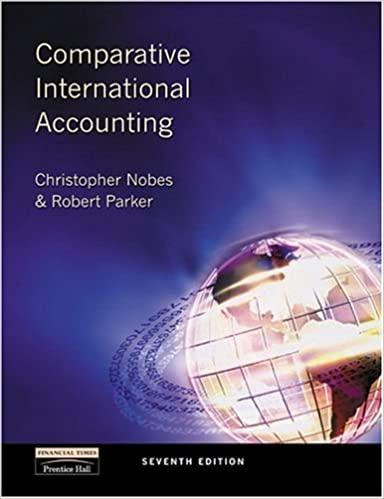Question
Please explain solutions using provided template Part 1 Riverside, Inc. forecasts the following sales for the second quarter of 2012, as well as actual March
Please explain solutions using provided template
Part 1
Riverside, Inc. forecasts the following sales for the second quarter of 2012, as well as actual March sales:
| March (actual) |
| April | May | June | 2nd Q. Total |
| $3,000 |
| $4,000 | $5,000 | $6,000 | $15,000 |
In addition:
a. The company makes 60% cash sales and 40% credit sales.
b. It collects all credit sales in the month after the sale.
c. The firm budgets $4,400 for monthly operating expenses. That amount includes $400 for depreciation.
d. The firm pays all of its cash-based expenses in the month incurred.
e. Riverside, Inc. had $100 of cash at March 31, 2012, and it must maintain a minimum $500 cash balance at the end of every month to ensure liquidity.
f. The company has a line of credit with its bank that allows borrowing in $100 increments at 12% interest. All borrowing takes place at the beginning of the month in which the company requires cash.
g. The company must repay principal in hundred dollar increments.
h. The credit facility requires Riverside, Inc. to repay all accrued interest to date whenever it repays principal.
i. Principal repayments and interest payments occur at the end of a month (funds permitting).
Required: Develop monthly and quarterly short-term financing budgets for the second quarter of 2012.
Part 2.
Use the sales forecasts from Part 1. above. Assume Riverside sells its only product for $10. The firm has monthly fixed costs of $600 and variable costs of $8 per unit.
a. Compute the monthly breakeven point.
b. Forecast monthly and quarterly operating incomes.
c. Assume Redlands could lower its variable costs to $7 per unit if it were willing to increase its fixed costs by $550 (to $1,150 per month). Based on its sales forecasts, should Redlands adopt the new cost structure?
Part 1.
|
| April | May | June | 2nd Q |
| Cash sales |
|
|
|
|
| Credit sales collected |
|
|
|
|
| Cash receipts |
|
|
|
|
| Cash monthly payments |
|
|
|
|
| Cash inflow (outflow) |
|
|
|
|
| Amounts in Thousands | April | May | June | 2nd Q |
| Beginning cash balance |
|
|
|
|
| Net cash flow |
|
|
|
|
| Available cash |
|
|
|
|
| Borrowing needed |
|
|
|
|
| Repayment of principal |
|
|
|
|
| Payment of interest* |
|
|
|
|
| Net cash balance |
|
|
|
|
Part 2.
a. Breakeven Point =
b. Monthly and Quarterly Operating Income
|
| April | May | June | 2nd Q. Total |
| Sales revenue |
|
|
|
|
| Variable cost (.8) |
|
|
|
|
| Contribution margin (.2) |
|
|
|
|
| Fixed cost |
|
|
|
|
| Pretax income |
|
|
|
|
c. Proposal
|
| April | May | June | 2nd Q. Total |
| Sales revenue |
|
|
|
|
| Variable cost (.7) |
|
|
|
|
| Contribution margin (.3) |
|
|
|
|
| Fixed cost |
|
|
|
|
| Pretax income |
|
|
|
|
Step by Step Solution
There are 3 Steps involved in it
Step: 1

Get Instant Access to Expert-Tailored Solutions
See step-by-step solutions with expert insights and AI powered tools for academic success
Step: 2

Step: 3

Ace Your Homework with AI
Get the answers you need in no time with our AI-driven, step-by-step assistance
Get Started


